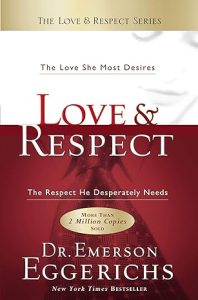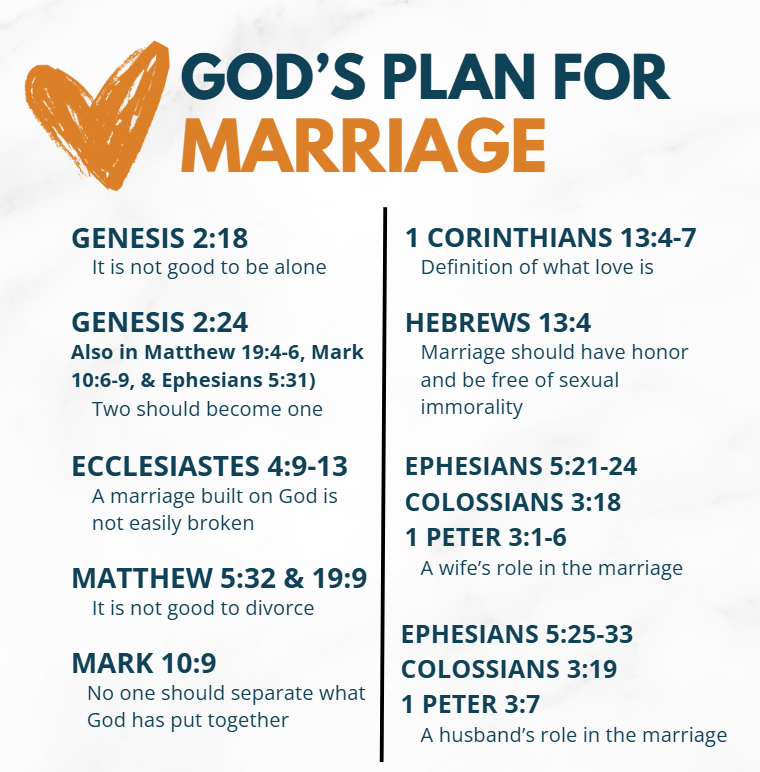Sunday Services: 9:00am & 11:00am
624 S. Broadway Blvd or LIVE ONLINE

Love and Respect by Dr. Emerson Eggerichs

Pastoral Counseling at Revolution Church helps you process your feelings through the lens of God’s truth, pursue eternal joy over fleeting happiness, and live in obedience to Christ.
We offer the following Counseling:
Individual | Pre-marital | Marriage | Family
No, you don’t have to be a member of Revolution Church. However, you do need to be actively attending at least our Sunday church service.
Each session is 45 minutes to an hour long
No. If I expect a perfect marriage, I will be disappointed.
From the beginning, God designed marriage as a covenant — not simply for human companionship, but as a living metaphor of Christ and His Church (Eph. 5:25–32). This means the point of marriage is not to showcase perfection, but to display the gospel.
Christ’s love for His Bride was not easy or painless; it was self-giving, sacrificial, and steadfast, even when His people were unfaithful. In the same way, my marriage will not be free of sin or struggle. Two sinners becoming one means conflict is inevitable. But in that refining process, God shapes me to love with greater patience, forgiveness, and endurance. God even uses conflict to point me back to His greater story — that marriage is ultimately about Christ’s covenant love for His people.
Expecting “perfect” marriage is crushing, both to me and my spouse. The biblical picture is not flawless harmony, but covenant faithfulness — a husband and wife laying down their pride to mirror Christ’s unwavering love. Joy in marriage doesn’t come from avoiding hardship but from learning to walk through it together in humility and obedience, pointing back to the greater story: Christ’s covenant with His people.
Practically, couples who chase personal happiness often end up disillusioned and divorced. Research shows that couples who prioritize service, forgiveness, and long-term commitment find deeper satisfaction than those who demand constant emotional fulfillment. Joy is deeper and more lasting when it comes through shared sacrifice.
If I make marriage about myself, I will struggle. If I make it about serving my spouse, it will be better. But if we serve Christ together, we find a marriage that endures.
If I want God’s blessing, I should not just live together — I should marry.
Living together may look like marriage, but it is missing God’s covenant. Marriage is God’s idea, not man’s. Cohabitation treats commitment as temporary; marriage binds two lives into one covenant before God.
Jesus said, “What God has joined together, let no one separate” (Mark 10:9). When a man and woman marry, God Himself joins them. Ephesians 5 says marriage is a “mystery” that points to Christ and the Church. Christ does not test His Bride before committing; He binds Himself forever. When I choose marriage over cohabitation, I display the gospel. Living together apart from marriage undercuts that metaphor by treating the holy as casual.
Practically, cohabitation increases the likelihood of divorce. Studies show that couples who live together before marriage report less trust, less stability, and less long-term satisfaction. Marriage provides accountability, public commitment, and a firm foundation for joy and security.
If my marriage feels difficult, I should remember that God is using it to shape me.
Marriage is not designed to make me comfortable but to make me holy. Conflict and difficulty are not signs that marriage has failed; they are signs that God is refining me through covenant love.
Romans 8:28–29 shows that God’s purpose is to conform me to the image of Christ. Marriage is one of His main tools for that. Living in covenant with another sinner exposes my impatience, pride, and selfishness. It forces me to practice forgiveness, humility, and love. Ephesians 5 shows that marriage reflects Christ’s sacrificial love. He gave Himself up for His Bride, and I am called to mirror that love even when it costs me.
Practically, studies confirm that most unhappy couples who stay married report becoming happy again within five years. Enduring hardship together leads to resilience, deeper love, and stability. Struggles are not signals to quit but opportunities to grow stronger.
If I want my marriage to thrive spiritually, I should worship with my spouse.
Marriage is not just about two people — it is about two people walking with Christ together. Going to church anchors my marriage in God’s truth, His people, and His mission.
Marriage is designed to reflect Christ and the Church. That means my marriage cannot thrive if I ignore the Church. Hebrews 10:25 commands believers not to neglect meeting together. Worshiping as a couple keeps our marriage rooted in the gospel. It reminds us that our covenant is not about our happiness but about displaying Christ’s love to the world.
Practically, couples who attend church together are statistically more stable, less likely to divorce, and more likely to report satisfaction in marriage. Couples who consistently attend church together tend to experience greater marital satisfaction and lower divorce rates than those who do not. Research shows that regular churchgoers are 30–50% less likely to divorce and are 15 percentage points more likely to report being very happy in their marriages. Worshiping together creates rhythms of prayer, accountability, and support that strengthen bonds both spiritually and relationally.
If I’m in physical danger, I should separate immediately for safety. Abuse is sin. I should get help from church leaders, counselors, and authorities. Whether abuse qualifies as biblical grounds for divorce depends on whether it includes abandonment or unrepentant covenant-breaking and should include discussion with a Pastor. But my first step must be protecting myself and children.
God never commands me to remain in a situation of physical harm. Marriage is meant to reflect Christ’s sacrificial love, not to be used as a weapon of control and abuse. Abuse directly violates Ephesians 5, where husbands are commanded to love their wives “as Christ loved the church and gave himself up for her.”
The Bible does not list “abuse” as an explicit ground for divorce, but abuse often manifests itself as covenant-breaking. If an abuser refuses repentance and continues in destructive sin, this may constitute abandonment of the covenantal responsibilities of marriage. In such cases, separation for safety is necessary, and divorce may be biblically defensible.
Pastorally, it is vital that I know: God cares about my safety and the safety of my children. The church must stand with victims, not enable abusers. Legal authorities are also ministers of God’s justice (Rom. 13:4) and should be involved if necessary.
Dr. Clarke emphasizes in I Don’t Want a Divorce that safety and honesty are the first steps toward healing. Pretending abuse doesn’t exist only deepens the cycle of harm. God calls me to truth, courage, and protection of life.
If my spouse struggles with anger, I should not rescue them from the consequences of their behavior.
Anger destroys marriages, families, jobs, and friendships. Proverbs 19:19 says, “A hot-tempered person must pay the penalty; rescue them, and you will have to do it again.” Covering for their anger or fixing their mess only enables the cycle.
Marriage is meant to reflect Christ’s patient love. Jesus never lashes out in sinful anger; He bears with His people in gentleness. When I shield an angry spouse from the natural consequences of their actions, I am preventing them from learning repentance. God’s design is that sin carries consequences, and those consequences are often what lead people to change.
Practically, research shows that unresolved anger increases the likelihood of divorce, financial hardship, and even physical illness. Couples who acknowledge the problem and pursue counseling have much higher success rates than those who ignore it. Allowing natural consequences, while still offering forgiveness and boundaries, is the path toward change.
If I want counseling but my spouse refuses, I should still pursue it myself.
I cannot force my spouse to change, but I can allow God to work for me. Counseling provides tools, healing, and perspective that can strengthen my heart and my approach to marriage, even if my spouse isn’t ready.
In Scripture, God often works through one faithful person to bring transformation (1 Peter 3:1–2). A believing spouse can influence an unbelieving one through consistent love and godliness. Similarly, if I grow spiritually and emotionally healthier, I may create space for my spouse to soften and join me in counseling later.
Practically, studies confirm that individual counseling, even without the spouse present, improves relationship satisfaction and coping skills. Change in one partner often sparks change in the other. Waiting passively rarely helps, but active pursuit of growth can bring new life into the marriage.
If my spouse won’t admit fault, I should stay calm, speak truth in love, and refuse to join them in denial.
A spouse who never owns sin creates frustration and bitterness. But I can choose honesty without hostility. I cannot control their confession, but I can control my response.
Marriage reflects Christ and the Church. Jesus confronted sin truthfully, yet with patience. In Ephesians 4:15, Paul commands us to “speak the truth in love.” I must balance grace and truth, holding my spouse accountable while showing the same patience Christ shows me.
Practically, research shows that stonewalling and defensiveness are among the strongest predictors of divorce. Couples who learn humility and confession thrive. If my spouse refuses accountability, I may need to involve wise counselors or church leaders to mediate.
If my spouse and I keep fighting about the same issues, I should step back, look for the root problem, and change how I respond.
Repeating the same arguments is a sign that we are treating symptoms instead of causes. The cycle won’t break until I identify what is fueling the conflict and take responsibility for my own reactions.
The Bible teaches that conflict comes from desires battling within us (James 4:1). Marriage is not just about “winning” arguments but learning to submit to one another out of reverence for Christ (Ephesians 5:21). When I lay down pride and approach my spouse with humility, the cycle can begin to change.
God also designed marriage with unique roles: wives are called to respect and submit, and husbands are called to love and lead (Ephesians 5:22–25). Without love, a wife will struggle to give respect in the way her husband longs for. Without respect, a husband will struggle to love in the way his wife longs for. When love is withheld, respect is withheld in return. When respect is withheld, love is withheld in return. That cycle only deepens conflict.
Withholding love or respect to punish a spouse may win the argument in the moment, but it will wound the marriage in the long run. True change happens when each of us meets the other’s God-given need out of obedience to Christ, not as a bargaining chip.